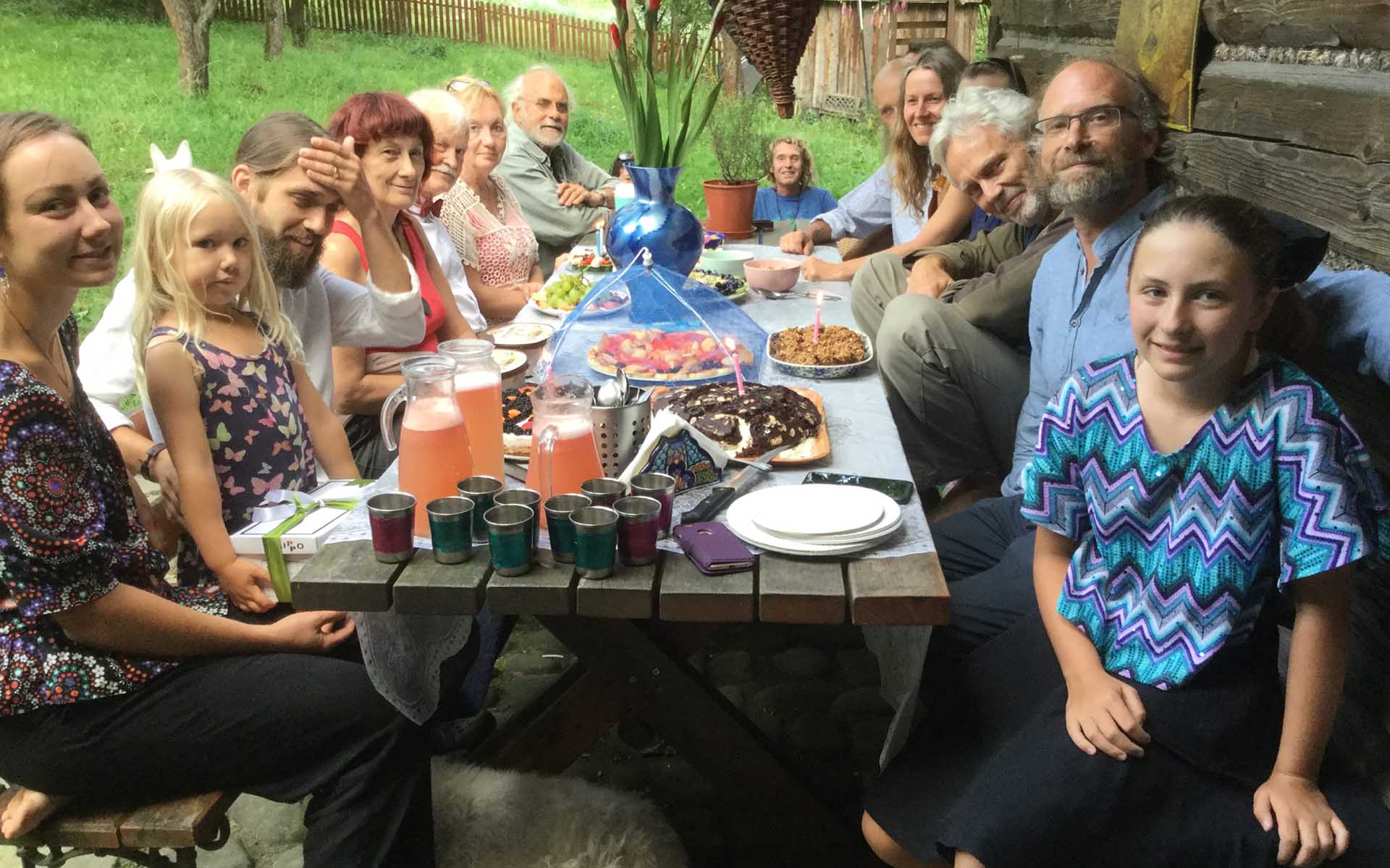Foundation History
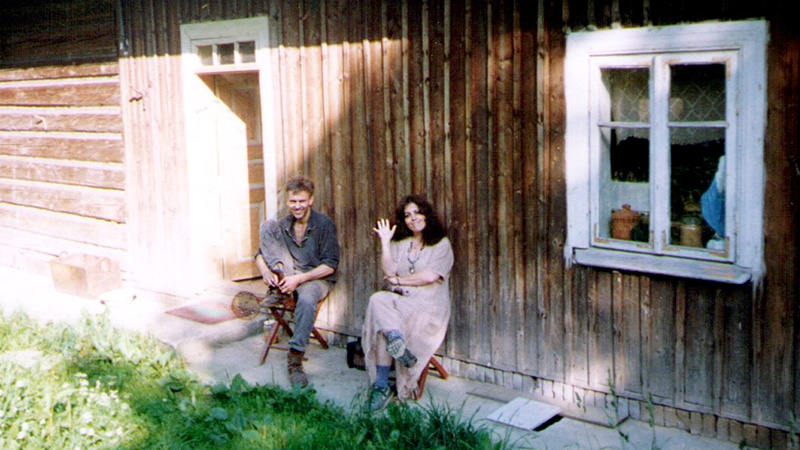
Jarek Bizberg & Fran Rosen-Bizberg, Wysoka 1995
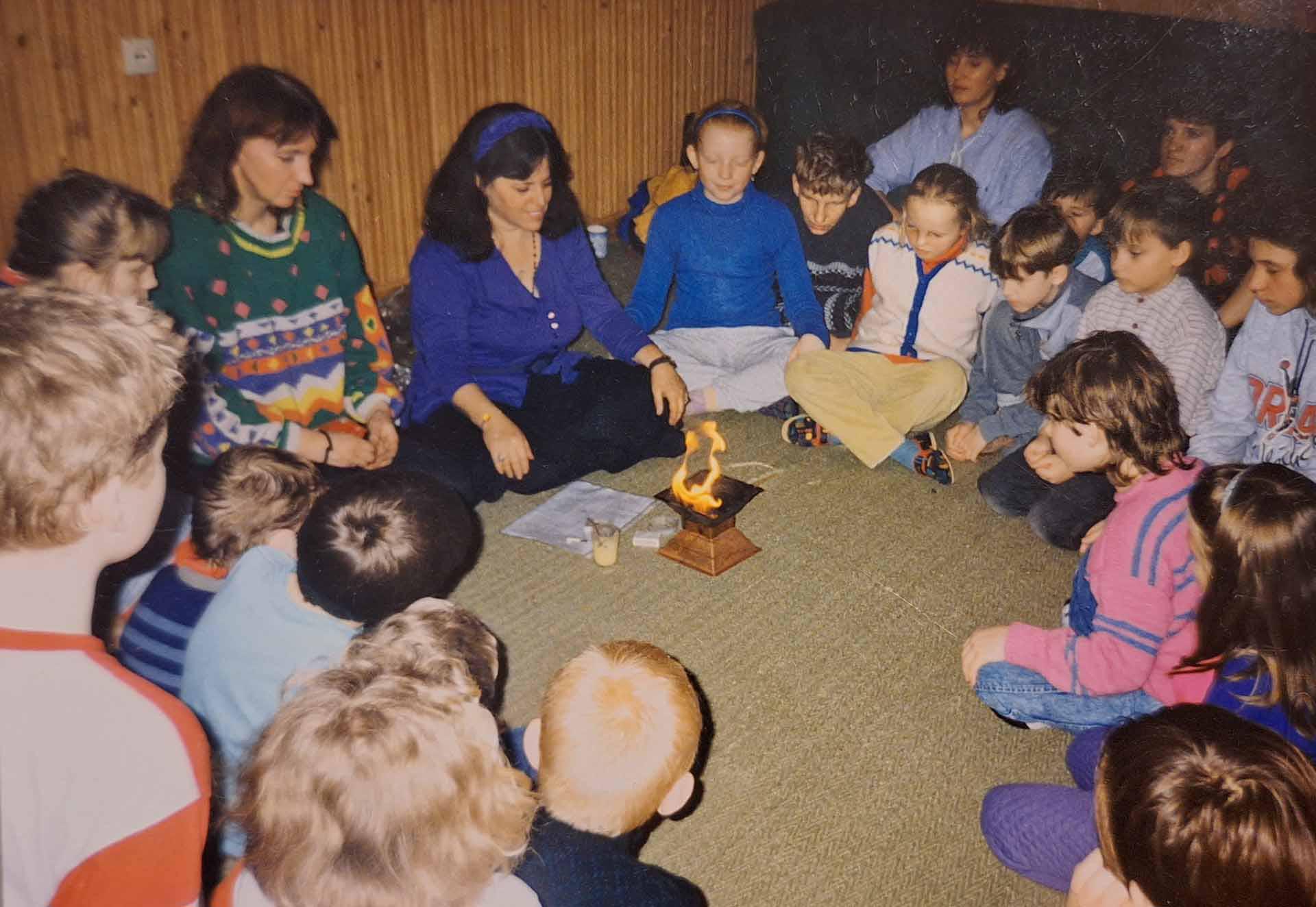
Fran leading Yoga & Meditation Workshop for children
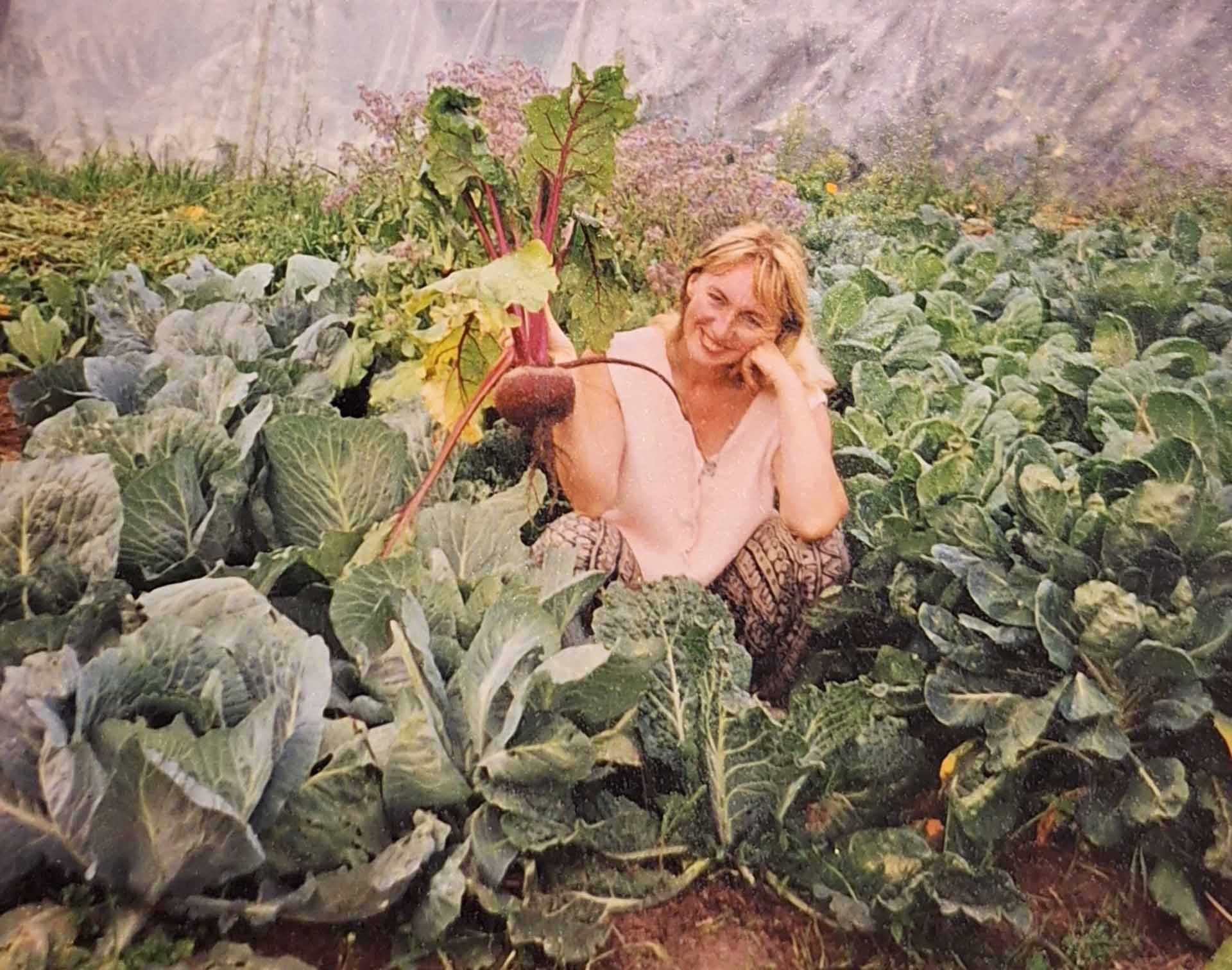
Maria Kalisz-Komorowska, Dachów 1997
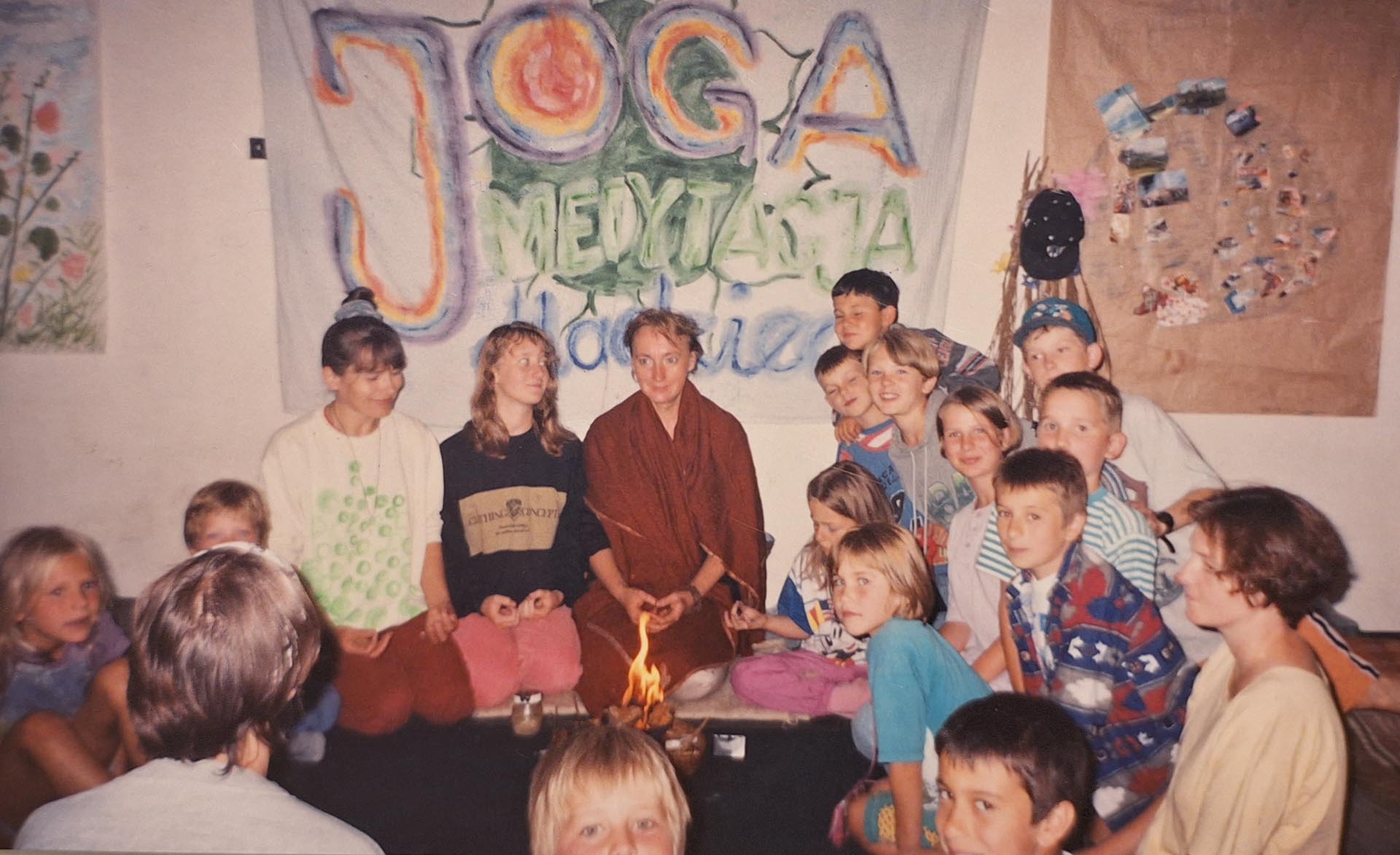
Yoga & Meditation Workshop for children in Dachów
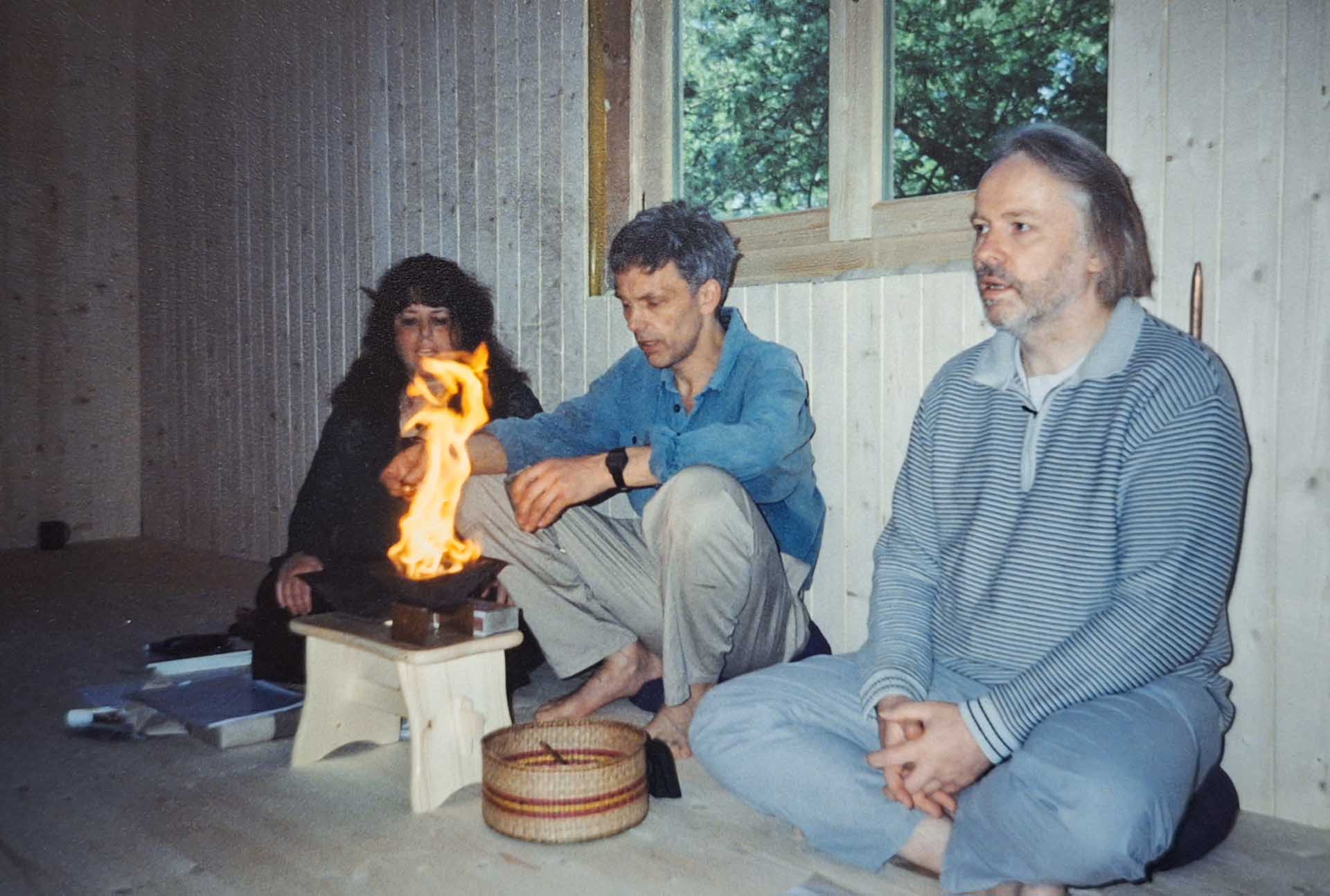
Fran Rosen-Bizberg, Jarosław Bizberg & Ulrich Berk, Wysoka 2000
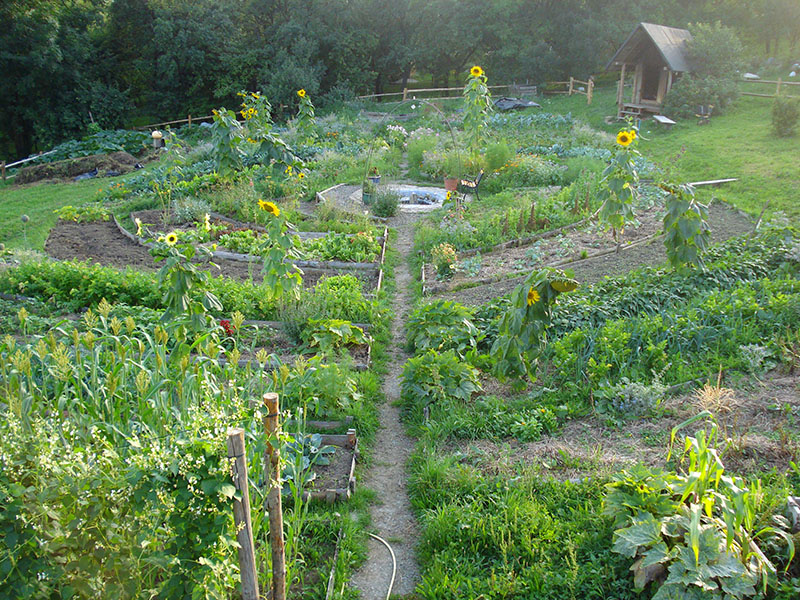
First garden in Wysoka
Homa Therapy Foundation Poland was founded and registered in the Polish Courts in 1992 by Maria Kalisz and Jarosław Bizberg. It was established to be the formal platform to share knowledge of Homa Therapy and all its applications.
Originally, the Homa Therapy Foundation was called Agnihotra Foundation, but was later changed in 1995 to incorporate its wider, holistic statute.
In 1991, Foundation member, Dr. Ulrich Berk, founded a Homa organic farm in Dachów, West Poland, close to the German border. It became the location for the Foundation until 1995. During that time, Homa Therapy Foundation taught Agnihotra and Homa Therapy to all who were interested.
The farm was set up to be an example of how Homa Therapy and Agnihotra worked in a practical and tangible way. Vegetable gardens were created and maintained by residents and volunteers, plus workshops in organic gardening, Homa Therapy, and experience weekends with Agnihotra were given. Guests and volunteers were able to experience and learn Agnihotra and they also participated in gardening and forest therapy.
Every week on Thursdays, women from the surrounding towns would come and attend Women’s Meetings, where there would be sharing, community building, art therapy and much more!
In July 1993, Fran Rosen (now Parvati Rosen Bizberg) was invited by Homa Therapy Foundation to do a series of teacher’s certification programs in “Yoga and Meditation for Children”.
Traveling from Virginia, USA, Parvati, together with Foundation President Jarek Bizberg, went to Teacher Colleges and rehab centers of nearly every main city in Poland from 1993-1995 to teach her ‘Yoga and Meditation for Children Teacher Training’. They provided a teacher’s certification program which was attended by teachers, psychologists and pedagogues who worked with children.
The workshops were reported on by national television stations, radio stations, newspapers and magazines, and were organized entirely by the Homa Therapy Foundation. These teacher trainings were recognised by schools as valuable tools for stress reduction techniques. In the same year of her first training in 1993, the Foundation published her book, “Yoga and Meditation for Children” in Polish language.
Activities for children ran from 1994-1999 in Dachów, and were facilitated by Foundation co-founder, Maria Kalisz. They included one week summer and winter camps held during school holidays. These activities were called ‘Vacation with Agnihotra’, where 10-12 children between 7 and 12 years of age would stay in Dachów at the Foundation Agnihotra Farm. Maria ran these camps with the help of volunteers. The activities for children were based on the teacher training that Parvati Rosen Bizberg taught in the initial course. The daily camp schedule included 2 hours of yoga and meditation, teaching in nature, art activities, gardening and a lot of playing. Children enjoyed tasty vegetarian meals and participated in yajnya and Agnihotra daily.
When the Foundation moved its centre to Wysoka in 1995, it concentrated efforts on developing a blueprint Homa organic farm and an eco-community known as Ecovillage Bhrugu Aranya. This framework Ecovillage is an active project of the Foundation. One key mission is to establish a blueprint for Homa organic agriculture, and prove the beneficial effects of Agnihotra and Homa Therapy. A community of like minded people and Foundation supporters have formed around the Ecovillage, which continues to grow to this day.
The Foundation built the Homa Therapy Foundation Wysoka center to establish a blueprint agricultural hub and prove the effects of Agnihotra and Homa Therapy through practical applications.
In 1995, tests revealed that the land had 4th Grade classification, denoting the soil to be very acidic, compacted, stoney and with high clay content. The initial reports showed very poor soil quality. In 2003, the same tests revealed healthy soil quality…after using natural organic farming techniques coupled with Homa Farming.
Although initially the soil acidity was high, through Homa organic Farming techniques the Foundation was still able to yield healthy vegetable gardens in those early years. Over time, the soil acidity has become much improved.
The land owned by the Foundation in Wysoka is a Homa Ecological Demonstration Farm. It is a major, ongoing project. Since 2006, this Homa Ecological Demonstration Farm has had an ecological farm certificate no.: PL -EKO -07-04331 awarded by the renowned certification body “Agrobiotest” from Warsaw and operating under the auspices of the Polish Ministry of Agriculture. Since then, the Foundation has been inspected every year and received a certificate of compliance in organic production.
Over the years, the Foundation developed contacts, partnerships and friendships with local schools, associations, alternative therapy centers, and other NGOs (or Nonprofit Organizations).
Since 2018, the Foundation has been cooperating with local centers working for the development of the social economy and entrepreneurship, such as:
- FRRR- Fundacja Rozwoju Regionu Rabka
- MILA – Fundacja Miejsc i Ludzi Aktywnych in Kraków.
Thanks to this, Fundacja was able to implement projects in accordance with its statutory activities. These projects were financed by Europejski Fundusz Społeczny.
A growing community of like-minded people and supporters has formed around the Foundation and is constantly growing. Currently, it has 8 houses, inhabited by 13 people and 3 children. All residents are committed to working to heal the natural environment. The farm is also inhabited by numerous animals: cows, goats, ducks, dogs and cats.
